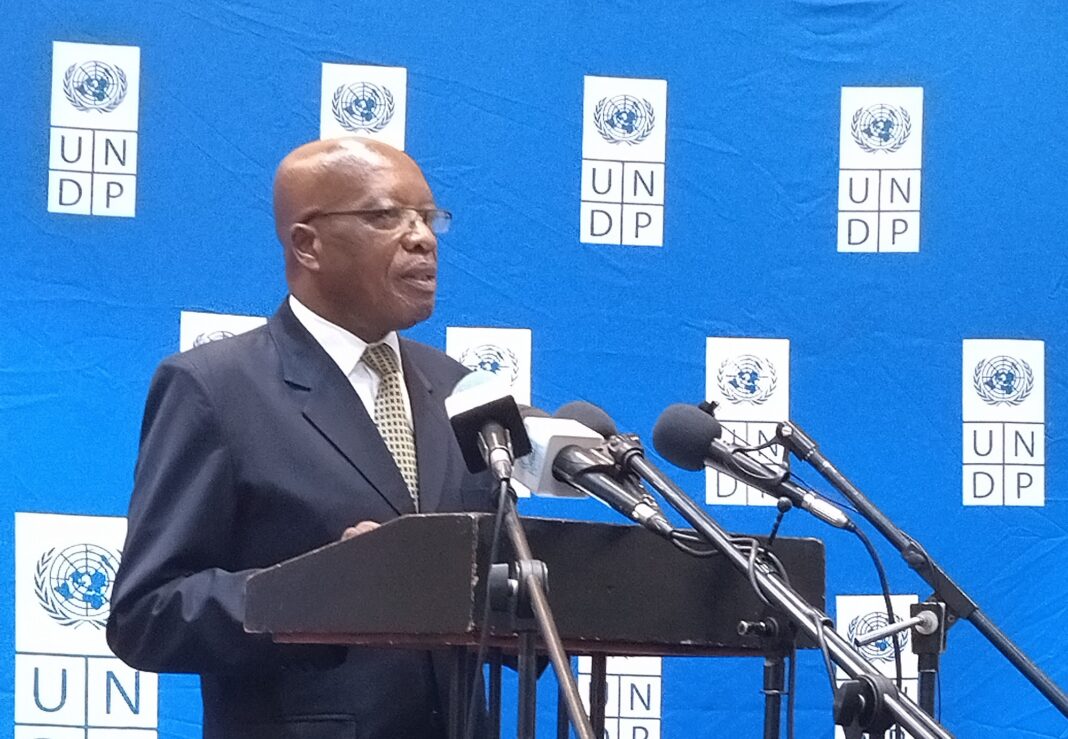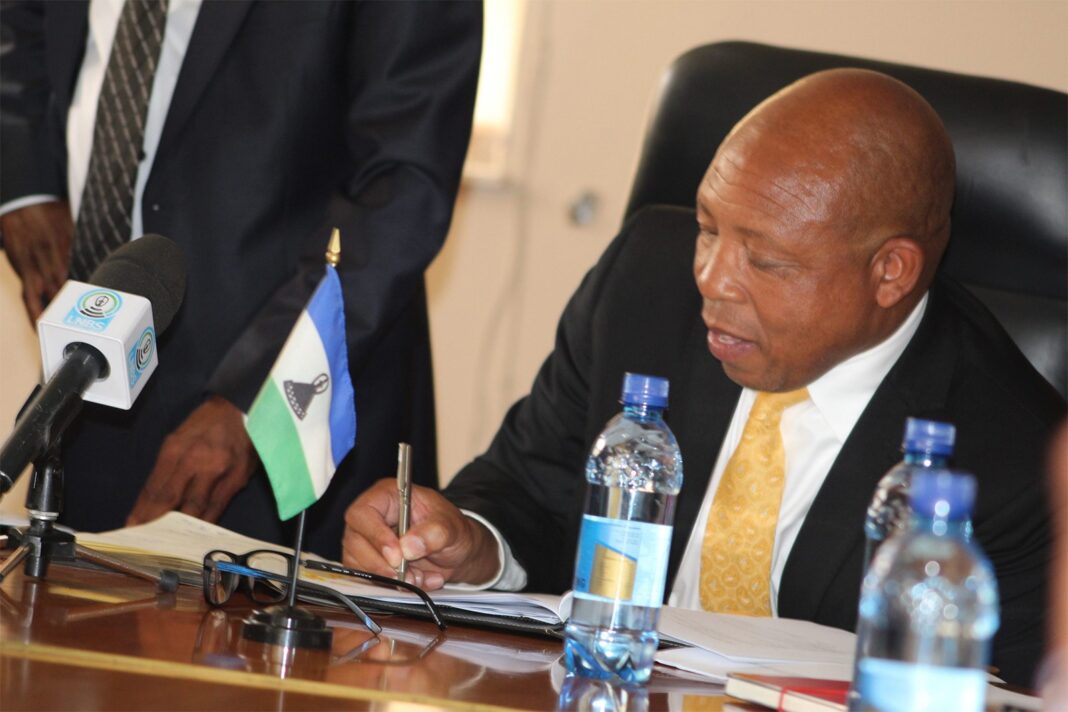By Motšelisi Sekonyela
The minister of forestry, range and soil conservation, Motlohi Maliehe says the government of Lesotho is committed to supporting its people’s efforts to adapt to the negative impacts of climate change.
Maliehe said this when officially launching the Soil and Water Conservation Policy in Maseru on Wednesday last week.
The Soil and Water Conservation Policy was developed by the ministry of forestry, range and soil conservation in collaboration with the United Nations Development Programme (UNDP).
The purpose of policy Purpose is to facilitate a robust and comprehensive integrated approach to conserving Lesotho’s natural resources by engaging approaches that will effectively reduce soil erosion, strengthen catchment management systems that allow for enhanced supply of water to sustain both natural and socio-economic requirements and to facilitate the restoration of and sustained productivity of the natural resource base.
Its goal is to protect land and water resources by conserving the natural resource base, while maximizing the potential for sustainable land management, using appropriate land management techniques.
The objectives of the Soil and Water Conservation Policy are to protect and improve sustainable use of the soil; improve the management of watershed resources to ensure regular supply and use of water resources; implement integrated watershed management approach in order to sustain catchment ecologic integrity and promote social and economic development; facilitate engagement of the public and relevant institutions in soil and water activities within and outside catchment areas; and to climate-proof soil and water conservation strategies and interventions.
It is envisaged that the policy will result in improved soil and water conservation, improved productivity and improved behaviour with informed decisions towards soil and water usage.
The policy is informed by, among others, the fact that soil loss through erosion in Lesotho is a widespread form of land degradation acknowledged as a major threat to soil productivity as early as the 1930s. Yet, efforts to reduce soil erosion have been largely ineffective to date despite the widespread recognition that it is an increasing problem, something that is compounded by population growth and demand for agricultural, residential and industrial expansion amid scarcity of land.
The minister said, to achieve the goals of the policy, the government is working hard to create an enabling environment through development of policies and laws that address the negative impacts brought about by land degradation and climate change.
“Therefore, the ministry in partnership with the UNDP has formulated the Soil and Water Conservation Policy to address issues of land and environment. I am proud to announce that this policy has gone through different stages of approval, being the cabinet and parliament.
“I therefore have an honour and privilege of declaring the soil and water conservation policy as officially launched,” he concluded.
At the same occasion, the UNDP Resident Representative Betty Wabunoha said outcomes four and five of a UNDP project called Reducing Vulnerability to Climate Change (RVCC) are what compelled the UN agency to partner with the ministry to push the implementation of this policy. These outcomes are; Reducing vulnerability from climate change in the foothills, lowlands and the lower Senqu River basin.
“The policy has been reviewed and updated to integrate climate change adaptation and mitigation considerations. The development of the policy has been achieved with financial support of the RVCC project, technical and oversight support from the ministry and other stake holders,” said Wabunoha.
Providing insight into the policy, Professor Makoala Marake – a senior lecturer in the faculty of Agriculture at the National University of Lesotho – indicated that the policy comprises eight priority land management areas.
“One is the integrated watershed management for conservation and rehabilitation of degraded land which among other things will determine soil scopes in major land use sectors in three river basins. Development of climate smart soil is the second priority area, climate smart and sustainable land management practises is the third.
“There is climate smart agricultural water management, protection of land and water resources from the negative impact of land-based developments. The sixth priority area is climate smart soil and water conservation research, followed by institutional coordination and finally gender equality, participation of youth and vulnerable groups including people with disabilities.
“All these priority areas are aimed at facilitating a robust and comprehensive integrated approach to conserving Lesotho’s natural resources by engaging approaches that will effectively facilitate the restoration and sustained productivity of the natural resource base,” Marake pointed out.
Meanwhile, the ministry’s director of soil and water conservation, Malefetsane Nthimo, said the launching of the policy will be followed by its implementation and amendment of the Land Husbandry Act of 1969.
However, he could not immediately confirm the timelines of the exercise, which he said requires that sponsors come on board to support the process.
“This process entails engaging communities and their local authorities, to get them to appreciate the reality that land degradation is taking place within their homesteads, arable land and rangeland.
“They are in essence the first line of defence in the fight against land degradation. Line ministries responsible for land management, as well as UN Agencies, non-governmental organisations and other community based organizations, have a role to play in this regard,” Nthimo told theReporter on Wednesday.









